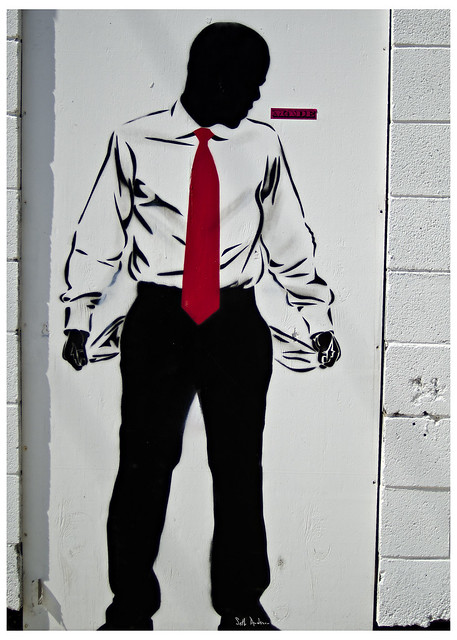
California Army National Guard FMS # 5
Speaking of the foolish idea of the US sending our military to Syria, Ramzy Mardini makes some good points:
AMMAN, Jordan — ACCORDING to Bill Clinton, Barack Obama risks looking like a “fool” if he decides not to intervene militarily in Syria’s continuing civil war. Likening the situation to his decision to intervene in Kosovo in 1999, Mr. Clinton said Tuesday that if he hadn’t used force to stop Serbia’s campaign of ethnic cleansing, critics might have said: “You could have stopped this by dropping a few bombs. Why didn’t you do it?” Mr. Clinton believes that Mr. Obama could end up looking like a “total wuss” if he doesn’t intervene. And it seems he’s going to act.
(click here to continue reading Bad Idea, Mr. President – NYTimes.com.)
Guns Or Butter
Why is America so hell-bent upon getting involved in another nation’s civil war? What interest does it serve? I have yet to hear a compelling reason the US should be involved.
For nearly two years, the Obama administration has described the Syrian regime as having “lost all legitimacy” and “clinging to power.” And yet, it has surprisingly endured. That’s because neither assertion is really accurate. Mr. Assad still has strong support from many Syrians, including members of the Sunni urban class. While the assistance Syria receives from its external allies, like Iran and Russia, is important, it would be inconsequential if the Assad regime were not backed by a significant portion of the population.
Interventionists tend to detach their actions from longer-term consequences. This myopia is often coupled with a prevalent misunderstanding of the political and cultural context of where they want to intervene. Both problems are present in the current American approach to Syria.
The Syrian revolution isn’t democratic or secular; the more than 90,000 fatalities are the result of a civil war, not a genocide — and human rights violations have been committed on both sides.
Moreover, the rebels don’t have the support or trust of a clear majority of the population, and the political opposition is neither credible nor representative. Ethnic cleansing against minorities is more likely to occur under a rebel-led government than under Mr. Assad; likewise, the possibility of chemical weapons’ falling into the hands of terrorist groups only grows as the regime weakens.
And finally, a rebel victory is more likely to destabilize Iraq and Lebanon, and the inevitable disorder of a post-Assad Syria constitutes a greater threat to Israel than the status quo.
Not since the 2003 invasion of Iraq has American foreign policy experienced a strategic void so pervasive.
The responsible role of a lone superpower is not to pick sides in a civil war; it’s to help enable conflict resolution while maintaining a policy of neutrality. Instead, the United States came down on one side of a regional sectarian conflict, inadvertently fomenting Sunni hubris and Shiite fear — the same effects (but in reverse) caused by America’s involvement in the Iraq war.
I sincerely hope President Obama comes to his senses, and ignores the warmongers.

